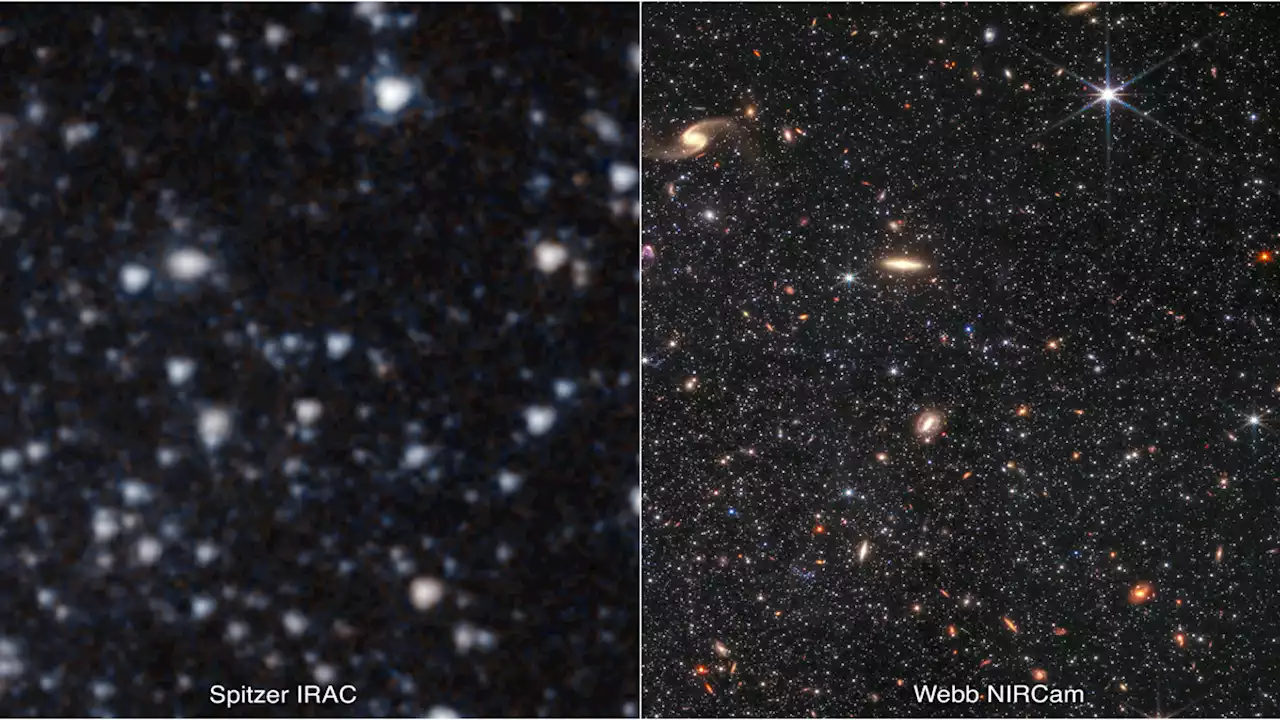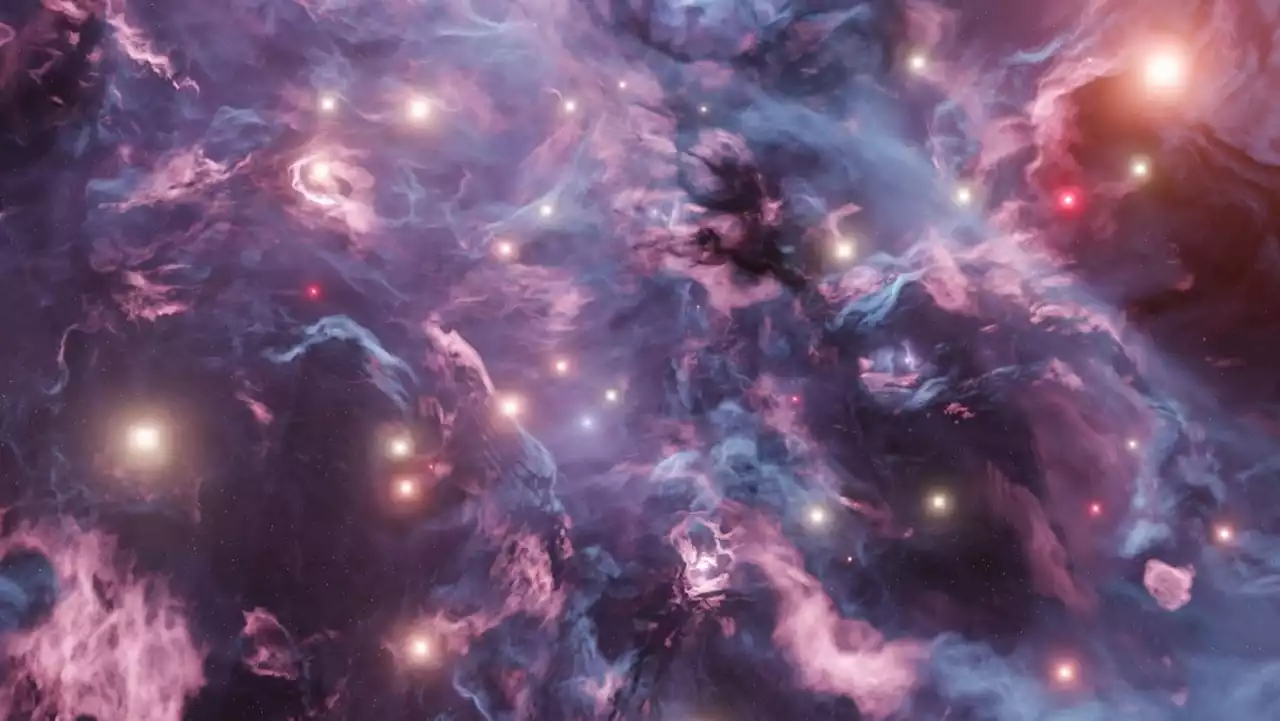Paul M. Sutter is an astrophysicist at SUNY Stony Brook and the Flatiron Institute in New York City. Paul received his PhD in Physics from the University of Illinois at Urbana-Champaign in 2011, and spent three years at the Paris Institute of Astrophysics, followed by a research fellowship in Trieste, Italy, His research focuses on many diverse topics, from the emptiest regions of the universe to the earliest moments of the Big Bang to the hunt for the first stars. As an 'Agent to the Stars,' Paul has passionately engaged the public in science outreach for several years. He is the host of the popular 'Ask a Spaceman!' podcast, author of 'Your Place in the Universe' and 'How to Die in Space' and he frequently appears on TV — including on The Weather Channel, for which he serves as Official Space Specialist.
far too quickly given the gravity of all the matter we can see. The same thing happens when we observe the motions of galaxies within clusters. And the cosmic web, the large-structure arrangement of galaxies throughout the universe, appeared and developed far too quickly given the meager amount ofSo a large portion of our universe is invisible, but we do not yet know what that dark portion is made of.
One idea to get around this is to make cold dark matter a little"fuzzy." If the dark matter is made of an incredibly tiny particle — say, 10^22 times smaller than an electron — then it would be light enough that its quantum mechanical wave-like nature would appear at large scales. So instead of these particles existing as point-like objects, they would be fuzzy, and their identities would be spread out over regions as large as 1,000 light-years.
Stars and galaxies need dark matter to form. Because the universe is constantly expanding, you need a lot of gravity to pull a clump of gas together to get high enough densities to trigger fusion and the beginning of star formation. And there simply isn't enough normal matter in the universe to make that happen. But clumps of dark matter in the early universe serve as gravitational incubators, attracting enough normal matter to form stars and galaxies.
United States Latest News, United States Headlines
Similar News:You can also read news stories similar to this one that we have collected from other news sources.
 Best space games 2022: Outer Wilds, No Man's Sky, Kerbal Space Program and moreExplore the cosmos and battle aliens with the best space games, from No Man's Sky to Mass Effect.
Best space games 2022: Outer Wilds, No Man's Sky, Kerbal Space Program and moreExplore the cosmos and battle aliens with the best space games, from No Man's Sky to Mass Effect.
Read more »
 Space Force's X-37B space plane has been in orbit for 900 days and countingThe U.S. Space Force's highly secretive X-37B space plane has created a new record by staying up in orbit for over 900 days now.
Space Force's X-37B space plane has been in orbit for 900 days and countingThe U.S. Space Force's highly secretive X-37B space plane has created a new record by staying up in orbit for over 900 days now.
Read more »
 Webb Telescope Brings a Once-Fuzzy Galaxy Into FocusWe have a much more interesting view of dwarf galaxy Wolf-Lundmark-Melotte, thanks to Webb’s imaging powers.
Webb Telescope Brings a Once-Fuzzy Galaxy Into FocusWe have a much more interesting view of dwarf galaxy Wolf-Lundmark-Melotte, thanks to Webb’s imaging powers.
Read more »
 Get 20% these Everlane favorites for a limited timeDeals that make us feel warm and fuzzy.
Get 20% these Everlane favorites for a limited timeDeals that make us feel warm and fuzzy.
Read more »
 Sounds of the stars: how scientists are listening in on spaceIn astronomy, the use of sound instead of light is breaking down barriers to participation and providing insight into the Universe.
Sounds of the stars: how scientists are listening in on spaceIn astronomy, the use of sound instead of light is breaking down barriers to participation and providing insight into the Universe.
Read more »
 Cargo Spacecraft Breaks Down En Route to Space StationThe NG-18 Cygnus cargo spacecraft has failed to deploy one of its solar arrays during its journey to ressuply the International Space Station.
Cargo Spacecraft Breaks Down En Route to Space StationThe NG-18 Cygnus cargo spacecraft has failed to deploy one of its solar arrays during its journey to ressuply the International Space Station.
Read more »
